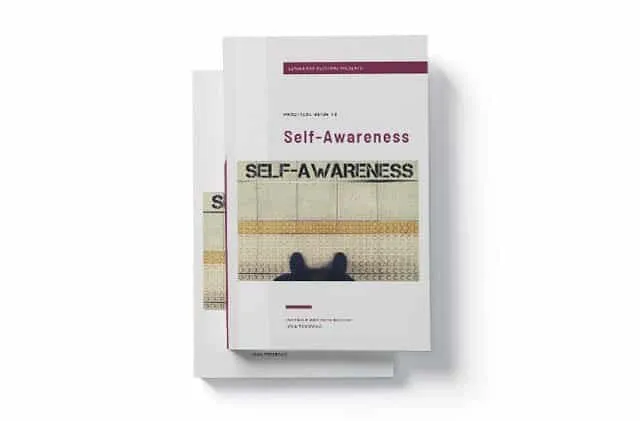Despite what many people believe, being an empathetic leader is not always a good thing. In fact, there are a few reasons why you shouldn’t be an empathetic leader. What can you do about empathy and how can you avoid the downsides of being too empathetic?
I’ve dug deeper to understand the link between leaders and empathy, and by the end of this article, you will understand how you can avoid the common pitfalls of empathetic leadership.
The unexpected downsides of empathy
Over the years, I’ve realized that empathy is crucial in leadership. While that is true, we must be aware of it, since it has a potential to do great things, but it can cause harm too. Among many, I’ve found these 5 downsides of empathy to be the most common.
Downside #1: It’s short-lived
Empathy is a wonderful and important quality to have, but it needs to be used the right way. When you involve your emotions into decision making, they may be short-lived. This happens because of the enormous distractions leaders face daily.
I’ve witnessed this in different industries and in different levels of the organization. If a leader was trying to empathize with their people without constructive feedback or action, situations became worse. This is because people were left with conflicting thoughts or feeling as though as you were just there to soothe them.
Downside #2: It can lead to inadequate decisions
Decision-making is an essential tool in the leadership toolkit. If we base those decisions on emotional reaction, we can shift them in the wrong direction and often harm people involved. Through research, I found that Paul Bloom, professor of psychology at the University of Toronto, claims that empathy is one of the main reasons why we have inequality and immorality.
This may sound like an extreme position, but in reality, it isn’t. As leaders, we are often faced with challenging situations and, as such, we tend to overlook certain scenarios. I have witnessed this personally, where I failed to understand that every person and their experience is different. I focused on what would I do in that situation, which often resulted in a difference of perception and, ultimately, inadequate decision.
Downside #3: It affects diversity
Empathy can be both a blessing and a curse when it comes to building diverse teams. While empathy does help people work better together, it may lead us in the wrong direction, away from diversity on our team. This is because we tend to identify with those who have experiences and backgrounds like ours.
Similarly, we may be affected by empathy when it comes to work assignments and positions within a company. Think about a recent situation where you were involved, or you heard of someone else experiencing this. Have you witnessed a leader promoting people like themselves? Yes, that happens too, and some of those leaders are completely unaware of it. This results in companies who lack diverse perspectives and lack innovation and creativity.
Downside #4: It can be limiting
Have you ever tried empathizing with more than one person at the same time? It’s almost impossible. Think about it. Take a few moments and think about two people that are relatively close to you. Can you feel what they feel? It’s truly difficult.
I remember during my days in the hotel and restaurant industry, talking to a few people from different teams within a short time. One person was having a difficult time overcoming the passing of their parent, and the other had a challenging client they were dealing with at the front desk.
I can clearly remember feeling the overwhelm of emotions. Frustration, sadness, anger, despair, just to name a few. As leaders, it’s crucial to look at the different perspectives. Unfortunately, with empathy, it can be constricting, and it may challenge us when making the right decision.
Downside #5: It’s stressful
We all have felt the pain of others at one point or another trying to empathize with them. Empathy can be harmful and leads to stress in some cases. This happens because of taking on someone else’s struggles becomes tougher and tougher over time. In the end, it results in empathetic numbness, where we just shut down our emotions.
At Cleveland Clinic, a nonprofit multispecialty academic medical center, they discovered that empathy fatigue is becoming a bigger issue in more people. “Day after day we’re hearing all of this bad news and these sad stories, and at first you might hear it and take it to heart,” says psychologist Dr. Susan Albers. “But after some time, you might find yourself tuning out or feeling numb to it saying, ‘Oh, that’s just another story about a wildfire,’ which wouldn’t be your typical response.”
Leaders who are caring and understanding can often encounter tough situations. When we take on a person’s emotions, it drains us physically, mentally, and emotionally, which leaves little energy for anything else besides dealing with ourselves.
How do you show empathy as a leader?
Outstanding leaders know that empathy can be an effective tool when used correctly. While all the downsides I mentioned earlier may seem unmanageable, there are still things you can do to reduce the risk of empathy fatigue.
As a leader, you can accomplish them by applying the following solutions:
Solution #1: Be objective
Leaders can often be unaware of their own biases. Even if they are aware, sometimes they have a challenging time admitting they do. If you, as a leader, can handle your own bias first, your teams will prosper significantly faster. This way, you will influence the entire organization, from recruiting, retention, and innovation.
To do this effectively, you need to be as objective as possible. You can take this a step further by avoiding preferential treatment. Encourage people with different perspectives to contribute to the team. It will eventually lead to healthy diversity and help the organization thrive.
Solution #2: Delegate responsibility
When you or your employees focus on a certain set of stakeholders, it makes the work needed less overwhelming. You can reduce the empathy fatigue and pressure by selecting a group of people to care for internal and the other for external clients.
With this strategy, you’ll accomplish more since everyone doesn’t have so much responsibility weighing down on their shoulders. It’s practically distributing the care and kindness across teams, departments, and company. While empathy is a finite resource for an individual, doing it this way makes it less finite.
Solution #3: Strive to create balance
Leaders should strive to create a balance in empathy. When you are trying to feel how your people feel, it’s crucial not to take on the whole burden of everyone. I know what you’re thinking. Is this going to create a detachment? No, this approach just means you will be reasonably involved.
You can strive towards balance in empathy by establishing certain limits, so you can recognize the difference between feelings of your people and your own feelings. Developing this with consistency will improve your awareness of when and how empathy influences you and everyone around you.
Solution #4: Promote accountability
Being an empathetic leader doesn’t mean you should allow people to take advantage of you and other people in your team or organization. It’s crucial to be firm and observe if things are going a bit too far, especially if some people never give back and help others.
This doesn’t mean you shouldn’t take a human-centered approach. On the contrary, it is essential for you to do so while being accountable for yourself and your team. Everyone plays a role in the organization and it’s possible for everyone to respect boundaries while keeping each other accountable.
Solution #5: Provide breaks
Empathy is not something that comes naturally to everyone. It requires hard work and mental effort just to get into another person’s shoes and feel what they feel.
Giving employees the occasional break can help them maintain their emotional and mental well-being. One of the ways to do this is by encouraging self-directed projects, like Google does with its 20%-time policy, which was introduced back in 2004. While this may not be the best solution, with enough flexibility, people will benefit in the long run. Some companies, like Orrb Technologies, go as a far as developing wellness pods, which allow people to really disconnect, relax, and meditate.
In the research done by the Department of Psychology and Behavioral Sciences, Louisiana Tech University, United States, they found when people take time out for themselves, it can help them become more empathetic towards others.
Is empathy important in leadership?
Although empathy has its drawbacks, it is still a valuable tool for leaders. By being objective and delegating responsibility, they can create a balance in empathy that leads to positive outcomes. Leaders should also promote accountability and provide breaks to employees so that they can maintain their emotional and mental well-being.
The most effective approach to empathy is talking with your people about their experiences instead of assuming how they feel. This will lead you towards compassion and, if you want to know why compassionate leadership is the future of business, read my article below. In it, I shared 4 ways on how to be a more compassionate leader.






